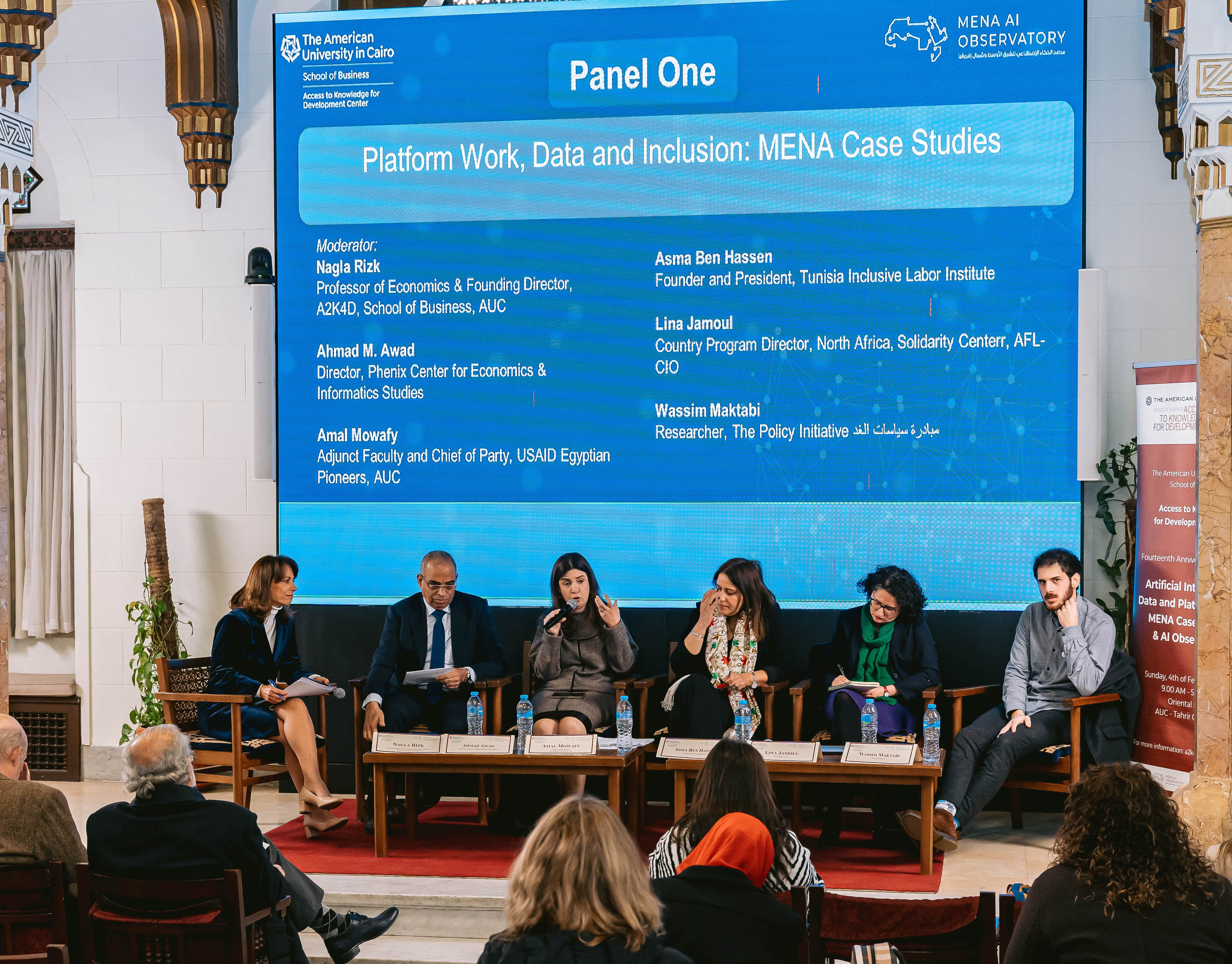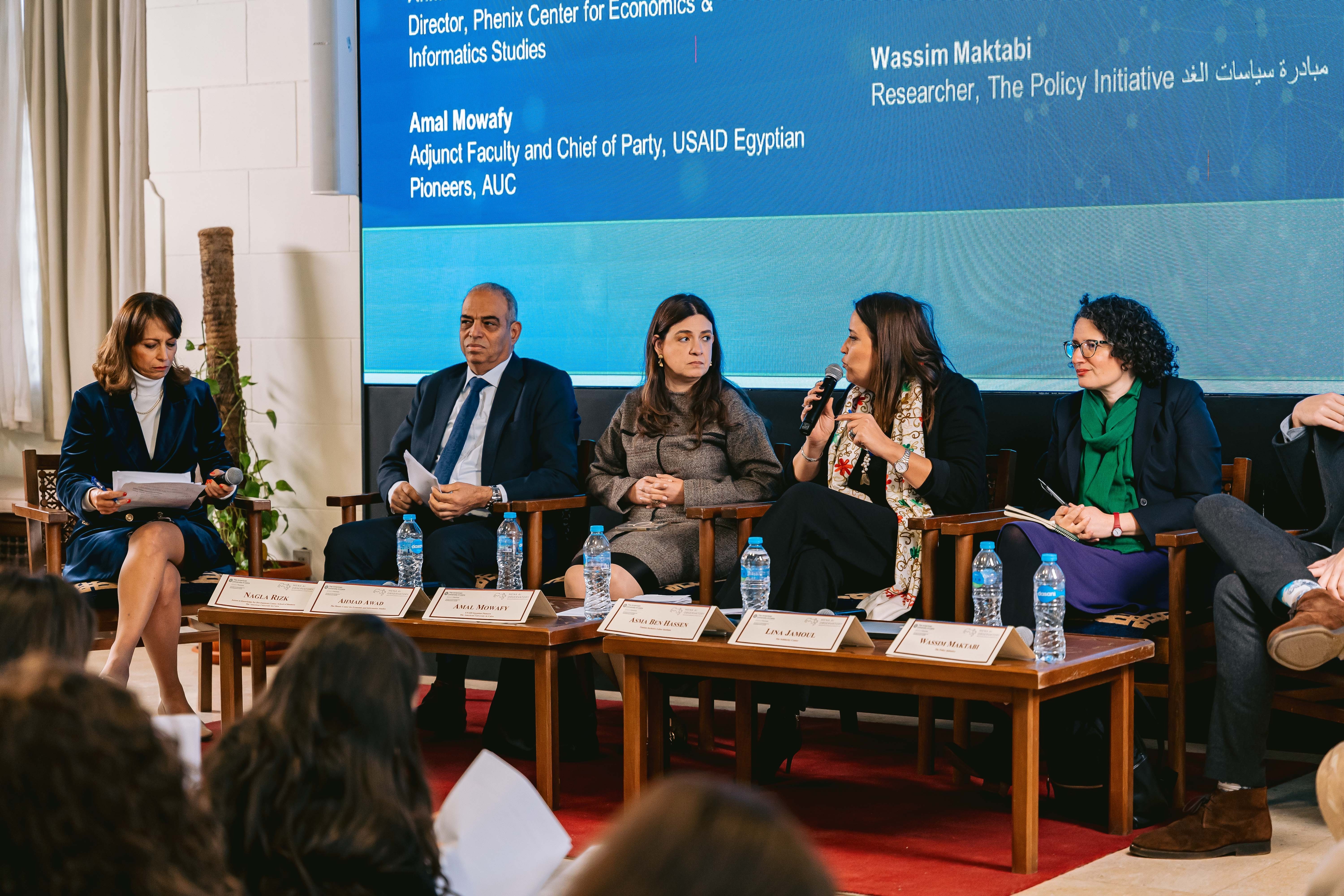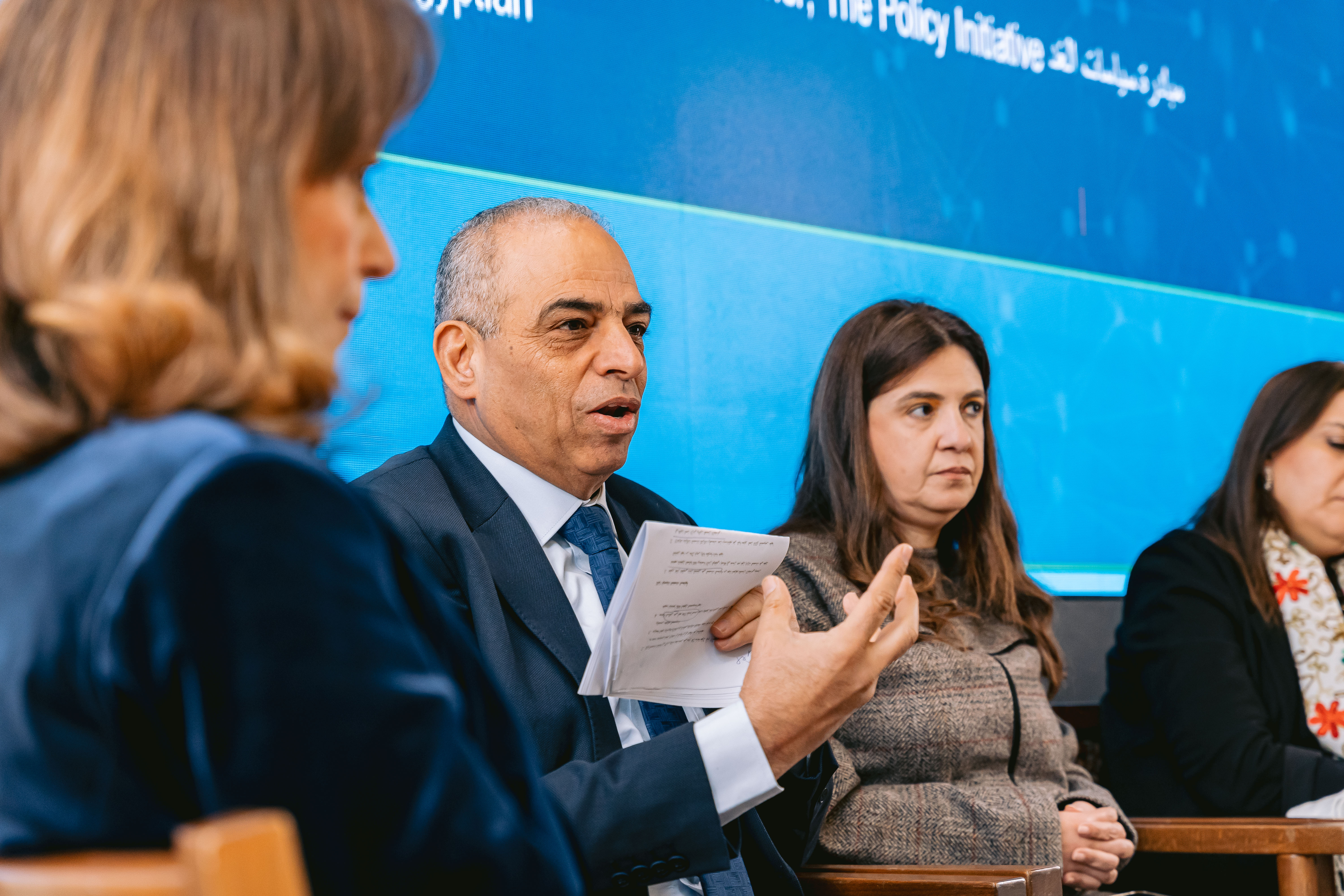Platform Work, Data and Inclusion: MENA Case Studies: Session Brief
2024-02-29
2024-02-29
Since the COVID-19 pandemic, there has been an acceleration of platform mediated work, particularly those working on the ground, e.g. ride hailing and food delivery, or on the cloud, e.g. translation and data services. These new forms of work offer opportunities to the unemployed in the region, recorded at nearly 10 percent. Yet despite offering new opportunities, these new forms of work also come with their caveats.
Inspired by the growing popularity of new forms of work, coupled with the invisibility of platform workers in official data sources and thus absence from social policy, the Access to Knowledge for Development (A2K4D) Center at the American University in Cairo’s School of Business with the support of the Ford Foundation, launched its regional project titled “New Work, Data, and Inclusion in the Digital Economy: A MENA Perspective'' in 2022. The project spans 5 MENA countries with the following research partners in each: Phenix Center for Economic and Informatics Studies in Jordan, the Policy Initiative in Lebanon, Tunisia Inclusive Labor Institute in Tunisia, the Solidarity Center in Morocco, and A2K4D in Egypt.

Panel Discussion
On February 4, 2024, A2K4D held its Fourteenth Anniversary workshop, “Artificial Intelligence, Data and Platform work: MENA Case Studies & AI Observatory”, bringing the voice of the MENA region to global debates on issues related to the governance of data and artificial intelligence, new forms of work, social justice, and the digital economy- all from a developmental perspective. The first panel of the day, titled “Platform Work, Data and Inclusion: MENA Case Studies” brought together representatives from the 5 regional partners who shared the specificities of platform work based on field research in their respective counties, highlighting the legal landscape, platform work conditions and policy recommendations.
The panel was moderated by Dr. Nagla Rizk, Professor of Economics & Founding Director at A2K4D. The panel speakers were: Ahmad Awad, Director, Phenix Center for Economic and Informatics Studies, Jordan; Amal Mowafy, Adjunct Faculty and Chief of Party, USAID Egyptian Pioneers, AUC, Egypt; Asma Ben Hassan, Founder and President, Tunisia Inclusive Labor Institute; Lina Jamoul, Country Program Director, North Africa, Solidarity Center, AFL-CIO, Morocco; and Wassim Maktabi, Researcher, the Policy Initiative, Lebanon.
Divided into three sections, the panel allowed speakers to share three aspects of their research. In the first section, panelists shared their respective objectives and motives as well as the relevance of the research to their countries. Then, panelists shared the key findings of their research, highlighting the most pressing challenges and opportunities. The session concluded with policy recommendations and ideas on ways forward to ensure that we continue contributing to advocacy and policy-making at the national and regional levels.
Context
Highlighting the importance of bringing forward a MENA perspective on the discourse about platform work globally, Dr. Nagla began the discussion with an introduction of the project and its overarching objectives, highlighting the need to “recognize the challenges, shift the narrative, and flip the argument”. This was followed by a discussion on the impact of the global economy on the MENA region, and especially on platform workers— “the ways that global economies are managed has pushed towards a lot of informal employment,” Ahmad Awad explained. He raised his concern with deregulation in Jordan, adding that it seems like “labor conditions must be weakened in order to induce investment and job creation…It seems like there is no intention to regulate, even though the ILO and recently the Arab League recognizes these workers as employees”. Amal Mowafy echoed similar sentiments, where in Egypt she finds that while platform work is not the employment opportunity of choice– there aren't other opportunities available, “these workers are living hand to mouth– many of them have had a decrease in their quality of life”.


Research Findings
Research findings show similar patterns across the region. In Egypt and Jordan, platform workers operate under very difficult circumstances— with no access to social protection, and a lack of protective gear provided by platforms, leading workers to create their own safety nets. The situation is similar for delivery workers in Tunisia, but slightly better for ride-hailing workers (e.g. Bolt and IntiGo), who enjoy relative organization through transportation unions. In Morocco, workers are not entitled to a minimum wage, provide their own equipment, and engage in unpaid training. Lina Jamoul noted that while platform workers are entitled to enroll under a social protection program in Morocco, none of the workers in their fieldwork have done so, and workers also seemed reluctant to join trade unions because many of them were unsure whether they were entitled to under the labor law, given their status as self-employed. In Lebanon, findings reveal that the conditions of delivery workers are consistent with the rest of the region. And while the ride-hailing sector is supposed to be different, given that it's a formal sector in Lebanon, that is not true. To join the taxi sector, drivers need to formally register and receive a red license plate– the reality, however, is that most platforms operate illegally, allowing workers to work without the necessary registration.
Moving Forward
When asked about the policy landscape and what can be done for inclusion, all speakers reiterated the importance of integrating workers within the legislative environment and relevant laws, such as the labor law, as well as the creation of a representative entity for platform work. Lina Jamoul emphasized that regardless of the classification of platform workers, they need to have access to basic rights: decent work, social protection, and application of legislation. Looking at Tunisia, Asma Ben Hassan recognized that traditional labor movements in the country are not interested in informal workers, highlighting the need for labor movements specifically tailored to informal workers.
When speaking about how to move forward, all panelists highlighted the need for more data on platform workers in their respective countries. As put by Amal Mowafy, “data is key— what is not measured cannot be managed”. Ahmad Awad reiterated, adding that the platform economy is growing at an exponential rate, and “and without monitoring and regulation, we will lose the ability to improve conditions in the sector”. He, along with Wassim Maktabi, also highlighted the need for change in social protection schemes so that they are universal and no longer tied to employment. In their concluding remarks, all panelists emphasized the cruciality of social dialogue. The government, platform workers, and platform managements must all engage in collaborative dialogue. Ahmad Awad, however, recognized this as only the first step, adding that it is necessary that workers are empowered to “sit at a negotiation table and be able to set standards for themselves.”
The importance of research on the topic was also raised, especially regionally, given that literature on the platform economy remains scant. Future plans include engaging in advocacy and creating awareness campaigns for platforms workers’ rights and their access to social protection. They also include the creation of a research network for all partners to ensure the sustainability of the project and their work. The network will focus on platform work research in the MENA region with the purpose of influencing global narrative on platform work by giving perspectives from MENA and the larger Global South.
Stay tuned for the project’s outputs which will be published on the MENA AI Observatory.